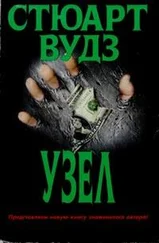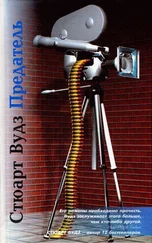“No, but we’ve got a guy who can. I’ll call him.” He picked up a phone.
A half hour later, a technician was at work on the tape, while Blake and Fisk continued to listen to the live feed.
“I think they regard that line as a slip,” Fisk said, “and now they’ve become more guarded.”
The tech took off his headset. “You want to hear it?”
Everybody gathered around the speaker.
“We’ll have other chances, as long as your friend keeps the information flowing.”
“That’s Sykes’s voice, speaking to Senator Hardy,” the tech said. “Looks like he said what you thought he said.”
“Oh, shit,” Tom replied.
Tom Blake, Bill Wright, and Stone Barrington sat at Stone’s dining room table and listened to the playback, before and after the tech had tweaked it. Holly had had a dinner to go to and could not be with them.
“How do you read that, Stone?” Wright asked.
“I read it as Hardy has a plant on Holly’s transition staff who’s feeding them her schedule.”
“I don’t know how else anybody could read it,” Tom said.
“Sam Meriwether is running the transition team. How much does he know about those people?” Stone asked.
“I haven’t spoken to him yet, but they’ve all applied for top secret security clearances. I’ve already asked our New York office to pull all applications and investigate them thoroughly.”
“How long have they had the applications?”
“Only a few days. Target date for completion is January 2.”
“Has anybody got a cell number for Sam Meriwether?”
“I have,” Wright said.
“Give him a call and put it on speaker,” Stone said.
Bill did so, and the vice president — elect answered immediately.
“Sam, it’s Bill Wright.”
“Evening, Bill, what can I do for you?”
“I’m with Tom Blake and Stone Barrington. Stone has a question or two for you, and we’re all on the call.”
“Hello, Sam.”
“Hi, Stone. What do you need to know?”
“Tom has reason to suspect that there might be a leak from someone on the transition staff.”
“A leak to whom?”
“To a person unfriendly to Holly.”
“What’s the nature of the leak?”
“Holly’s daily schedule.”
“I manage that, and I know most of our schedulers pretty well.”
“Think about it: Is there someone among the schedulers that you might trust a bit less than the others?”
“Let me tell you how this works,” Sam said. “We get a call — sometimes from a fund-raiser or other friend of the campaign — someone who wants Holly to speak or hand out diplomas at a graduation, or just to shake some hands. The call is directed to the scheduling team, and the person taking the call fills out a form taking down all the details: date, time, location, purpose of the gathering, numbers expected, like that.”
“Go on.”
“If that staffer thinks the caller isn’t who he says he is, or that the event isn’t worthy of Holly’s time, she puts the form into an out tray and it comes to me. I decide if I think the scheduler is wrong, that it is an important event, and order it to be put on the schedule. If I agree that it’s weak, a form letter goes out, over my signature, politely declining the invitation.”
“What happens if the scheduler thinks it’s a worthy event?”
“Then it goes to a scheduling supervisor, and if she thinks it’s worthy, then it’s discussed at a meeting, where we either schedule it or write a declining letter over Holly’s signature, with a handwritten note at the bottom.”
“So who sees the final schedule?”
“All the heads of the various subcommittees of the transition, at a daily meeting.”
“How far ahead of the event?”
“As little as a day or two or any time before January 20. After that, the White House staff takes over.”
“So how many people have knowledge of the schedule?”
“A dozen or fifteen.”
“Have they all applied for a top secret security clearance?”
“Yes, every one of them.”
“Have any of the clearances been granted yet?”
“No, the Bureau doesn’t do it piecemeal. We’ll eventually get a letter with a list of the cleared personnel. If someone doesn’t make the cut, I’ll get a phone call about why.”
“Anybody turned down yet?”
“No.”
“Sam, back to my original question: Is there anybody in that group that you trust a bit less than the others?”
“Anybody who used to be an extreme right-winger of any standing.”
“What does ‘of any standing’ mean?”
“Someone who worked for somebody important at a level requiring trust.”
“How many of those people are on the clearance list?”
“Well, there’s one who used to be a press aide to a recently appointed Republican senator and one who was a policy aide to a Republican congressman.” He gave their names, and Tom noted them.
“Anybody you have any personal qualms about, Sam?”
A long silence. “No. They’re a good bunch.”
“Sam, it’s Tom Blake. A question...”
“Go ahead, Tom.”
“Is there anyone among them who anybody thinks may have had ties with or even sympathy for a white-supremacy group?”
“No one that I know about, but a person like that wouldn’t be broadcasting those views around here.”
“Thank you, Sam. Anybody else have a question?”
Heads were shaken.
“That’s all, Sam. Thanks for your help.”
They said good night, then hung up.
“I’ll give these names to the right people,” Tom said.
“One other thing, Tom,” Stone said.
“What’s that?”
“I’d like to know if any of the people on that list are Virginians.”
“Why?” Bill asked.
“Because we’re dealing with a white supremacist from Virginia and, now, a senator from Virginia,” Stone said.
“Fair enough,” Bill said.
“Stone,” Tom said, “have you spoken to Lance Cabot about his man on the inside, the cook, at Sykes’s compound?”
“I confess I haven’t, Tom,” Stone replied. “I’ll speak to him tomorrow morning.”
“While you’re at it, ask him to ask his man if he knows of any outside visitors to the compound, people who aren’t members of his group.”
“I’ll do that,” Stone said, and they adjourned.
The following morning, Stone got Lance Cabot on the phone, and they both scrambled.
“What can I do for you, Stone?”
“Talk to me about Leroy Collins, aka Elroy Hubbard.”
“Are you a messenger from the FBI?”
“If you mean the assistant director you invited to lunch, then stiffed, yes. The question remains unanswered.”
“Do you think we discuss our officers with just anyone?”
“No, and I didn’t believe you would invite them to lunch, then stiff them, either.”
“That was unfortunate. There was a flap.”
“What was the nature of the flap?”
“You don’t have a need to know that,” Lance replied.
“Tom Blake has a need to know anything that will keep Holly Barker alive. I should think, given your past association with her — and your future service — you’d be happy to help him.”
“Do you want me to tell you everything about Leroy’s work?”
“I’d rather you’d call Tom Blake and tell him.”
“Almost nothing.”
“Say again?”
“Almost nothing; that’s what Leroy Collins knows about Wade Sykes and his merry band of hatemongers.”
“How long has Leroy been on the assignment?”
“Four or five months.”
“And he’s learned nothing? I don’t believe that.”
“ Almost nothing. He’s learned the name of the FBI agent assigned to the group.”
Читать дальше












